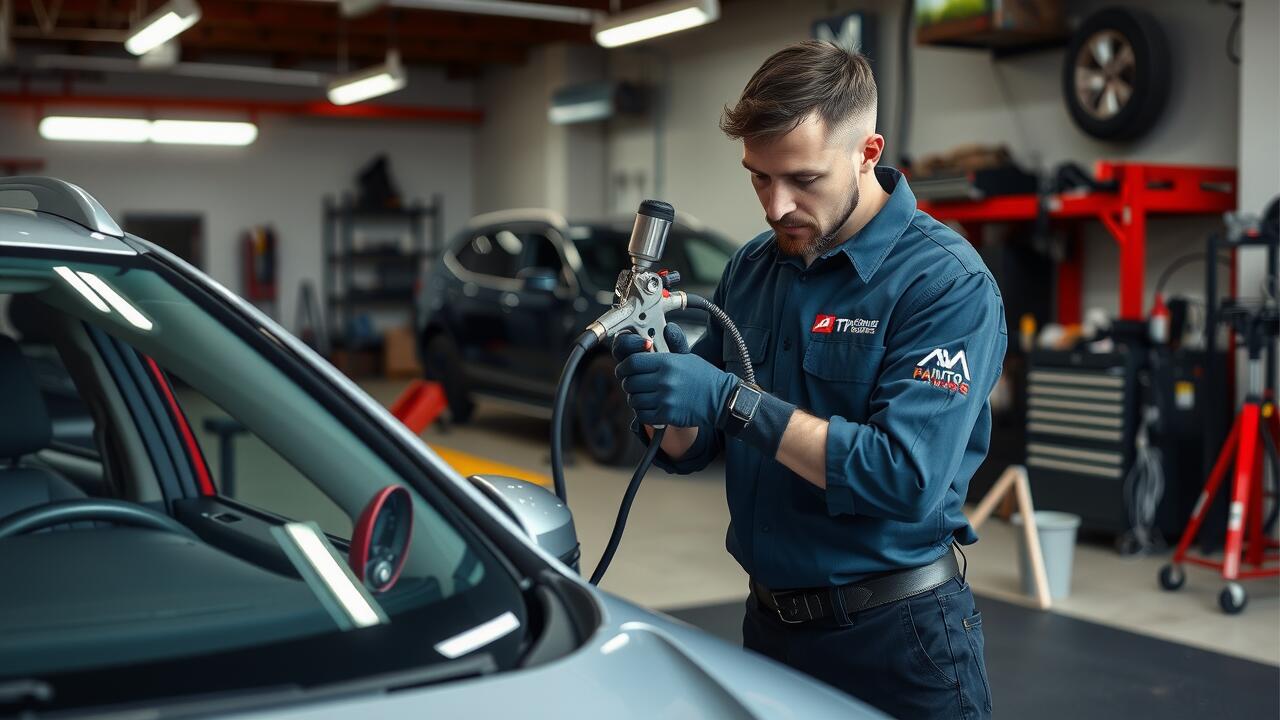
Possible Outcomes After Filing a Claim
When you file a claim for damages such as a door ding, the outcomes can vary significantly based on your insurance provider and policy details. Some insurers may view door dings as minor issues, resulting in no premium increase after a claim is processed. However, in other cases, especially if you have a history of past claims, your premium may rise to offset the costs associated with processing claims. It's important to weigh the potential financial implications before proceeding with a claim.
Exploring alternatives to filing a claim can be a wise choice if you're concerned about rate increases. Many drivers opt for door ding removal services to handle minor repairs without going through their insurance. This approach allows you to maintain a clean claims record, which can positively affect your future premiums. Ultimately, understanding your options can help you make informed decisions about how to manage minor vehicle damage effectively.
Rate Increases vs. No Impact
Filing a claim for a minor incident like a door ding can lead to different outcomes concerning insurance rates. Some policyholders may experience a premium increase following a claim. Insurers often assess the perceived risk of future claims based on a customer's claims history. A single small claim might seem trivial, but it can still influence your rate, particularly if you have a record of multiple claims.
On the other hand, some insurance companies offer leniency for minor incidents, especially if you have a good driving record. They may determine that a door ding removal does not warrant an increase in premiums, viewing it as an isolated occurrence. In these cases, insurers might prioritize maintaining customer satisfaction over raising rates for a minor repair, allowing policyholders to navigate the situation with less financial strain.
Alternatives to Filing a Claim
If you’re hesitant to file a claim for a minor issue like a door ding, there are alternatives worth considering. One option is to explore professional services specializing in door ding removal. These services often use techniques that don’t require repainting your vehicle, minimizing the cost and time involved. Many companies offer mobile services, making it easy to address the dent without disrupting your schedule.
Another route is to take on the repair yourself, especially if you enjoy hands-on projects. DIY door ding removal kits are available and can provide satisfactory results if used correctly. However, it's essential to research the proper techniques and tools needed to avoid causing further damage to your vehicle. A successful DIY approach may not only save you money but also prevent a claim from impacting your insurance premiums.
DIY Repairs and Their Implications
Many car owners face the decision of whether to tackle a door ding on their own. DIY repairs can be a cost-effective solution, especially for minor dings that haven’t damaged the paint or bent the metal. Products designed for door ding removal, such as repair kits and tools, are readily available at auto supply stores. While it may take some practice, successfully executing a DIY fix can save both time and money, preventing the need to file an insurance claim.
However, while DIY repairs can be beneficial, there are some implications to consider. If the repair is not done correctly, it could lead to further damage, which may become more expensive to fix down the line. Additionally, if you decide to resell your vehicle, poor-quality repairs might affect its market value. Being transparent about any repairs made can help maintain trust with potential buyers. Therefore, weighing the risks and benefits of door ding removal at home is essential before proceeding.
The Importance of Your Claims History
Insurance providers place significant emphasis on your claims history when determining premiums. A record of frequent claims can signal a higher risk to insurers, potentially causing your rates to increase. Even minor incidents like door dings, if reported, can contribute to this history. If you've had multiple claims in the past, filing for a door ding removal might further impact your insurance costs.
Conversely, a clean claims history often works in your favor. Insurers may provide discounts or more favorable premium rates to drivers who maintain a low level of claims activity. Taking care of minor damages, such as door ding removal, without involving your insurance could help you preserve that clean record. This strategy might save you money in the long run while keeping your insurance rates stable.
How Past Claims Influence Future Premiums
Insurance companies often assess a driver’s claims history to determine risk and set premiums. When you file a claim for something like door ding removal, it gets on your record, which can be reviewed at renewal time. Frequent claims signal to insurers that you may be a higher risk, potentially leading to increased rates. Even minor claims might contribute to this perception, affecting future premium calculations.
A clean claims history usually correlates with lower premiums. Insurers reward drivers who demonstrate responsible vehicle care and minimal claims with better rates. Therefore, a small incident may impact long-term costs, making it essential to weigh the benefits of filing a claim for door ding removal against potential premium hikes. Keeping track of claims and opting for self-repair can be prudent choices for maintaining favorable insurance costs.
FAQS
Will my insurance premiums increase if I file a claim for a door ding?
It’s possible. Filing a claim for a minor incident like a door ding can lead to an increase in your premiums, especially if you have a history of claims.
Are there alternatives to filing an insurance claim for a door ding?
Yes, you can consider DIY repairs or seeking out a local repair service to fix the door ding without involving your insurance.
How does my claims history affect my insurance rates?
Insurance companies often consider your claims history when determining your premiums. A history of multiple claims can lead to higher rates.
What are the implications of DIY repairs for a door ding?
DIY repairs can save you money and prevent a potential rate increase from filing a claim. However, improper repairs may affect the vehicle's resale value.
Should I always file a claim for minor damages like a door ding?
Not necessarily. If the cost of repairs is less than your deductible, or if you want to avoid potential premium increases, it might be better to handle the repairs out of pocket.

